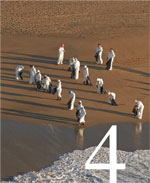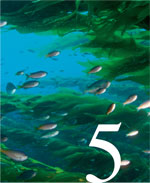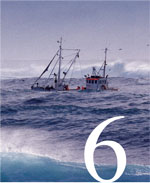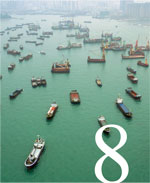- Living with the oceans.
- > This first “World Ocean Review” is published in 2010 and will be followed by periodic updates in the future. The result is a comprehensive, detailed and unique report about the state of the world’s oceans and their interplay with ecological, economic and sociopolitical conditions. Its aim is to increase public awareness of the interconnected nature of the diverse aspects of the marine environment and thus to boost marine conservation.
WOR 1
WOR 1 Living with the oceans. A report on the state of the world’s oceans | 2010









